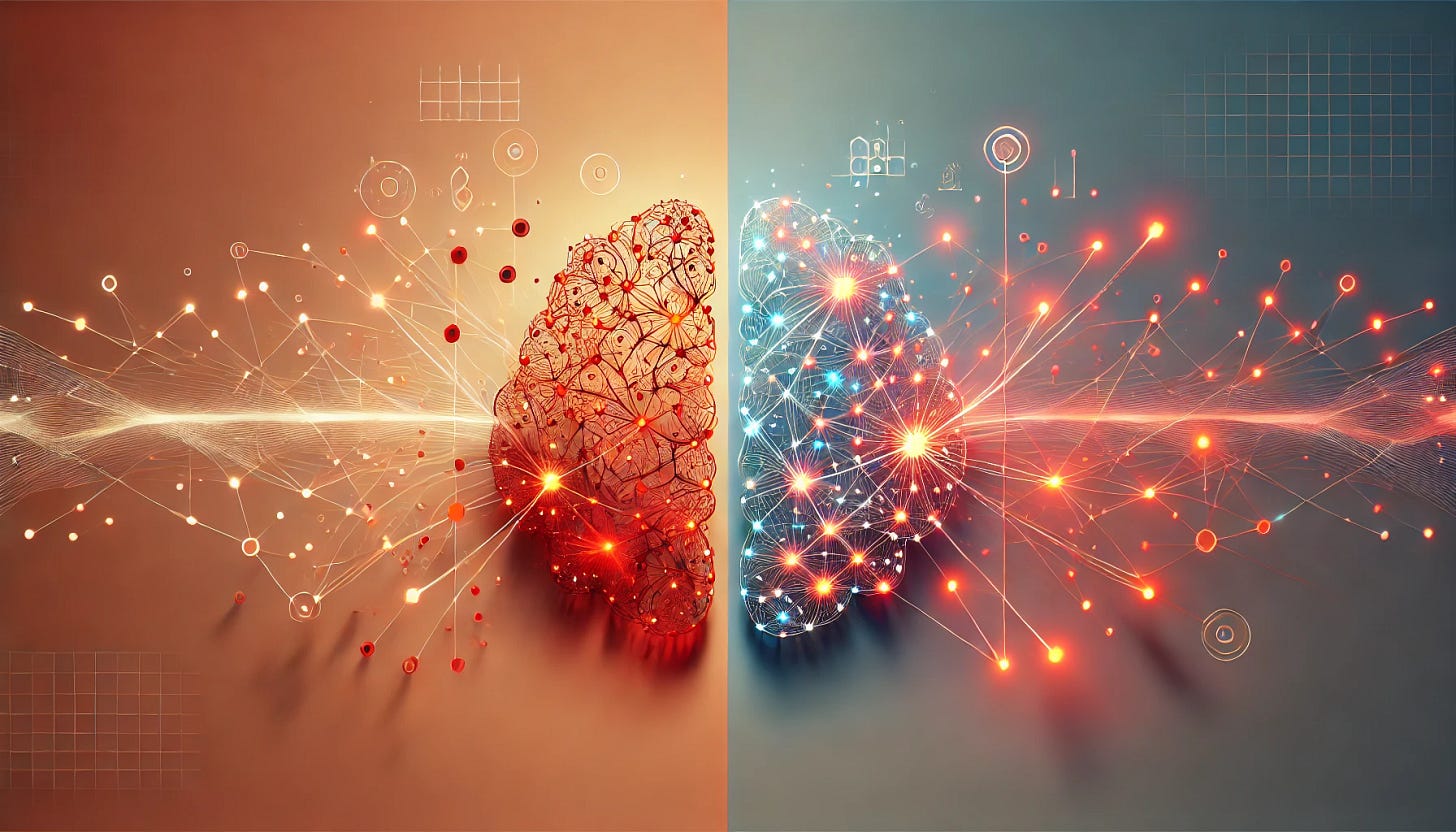A few days ago, I saw headlines claiming that AI is making us lose our thinking skills. These stories cited a Microsoft-Carnegie Mellon study, suggesting we're one step away from becoming mindless drones totally reliant on computers. The claims worried me. If true, the consequences would be serious. So I read the actual paper.
What I found was different from the headlines. This is actually the topic of my 150th science column for Hindustan Times.
The researchers surveyed 319 knowledge workers and found AI isn't destroying critical thinking, but it is changing how people think while using AI. Instead of gathering information, those surveyed were checking AI's work. Rather than solving problems from scratch, they were building on AI suggestions and moving from doing some tasks to overseeing them.
This isn't making people dumber. It's changing how they think.
Workers who highly trust AI tend to verify outputs less—no surprise. It's like having a competent assistant: eventually, you stop double-checking. However, workers confident in their abilities often engage more deeply with AI's suggestions, applying rigorous evaluation. They treat AI more like a creative partner than an infallible oracle.
AI can improve efficiency and might reduce mental effort in some areas. But that's not the same as proving long-term cognitive decline.
Consider a legal researcher using AI to analyze case law. Previously, they might spend hours reading cases for relevant precedents. Now, AI handles the initial search, but the lawyer's critical thinking remains essential in evaluating selections, identifying nuanced distinctions, and constructing novel arguments. The cognitive work hasn't diminished—it has shifted to higher-order analysis.
There are historical parallels. When calculators became widespread, many feared mathematical thinking would end. Despite concerns, calculators didn't destroy cognitive ability but freed mental resources for tackling other complex challenges. The same happened with spell-checking and GPS navigation.
The relationship between human cognition and AI isn't zero-sum. Just as writing and mathematics augmented human memory and reasoning, AI has potential to enhance rather than replace human capabilities. But AI lacks true understanding, intuition, and contextual judgment. It reinforces biases in training data, generates plausible-sounding errors requiring oversight, and struggles with complex ethical reasoning.
AI is also shaping new forms of thinking. Workers are learning to evaluate AI-generated outputs against human expertise, recognize when AI might introduce bias or miss context, and identify the limits of AI's reasoning. We're developing a vigilance that requires us to be informed curators rather than passive recipients.
I do worry about younger generations, though. What happens when children use AI before mastering basic skills? Will students who rely on AI writing tools learn to organize thoughts properly? Will those using AI math helpers understand core concepts? These questions weren't answered in this study and I don’t think anyone knows for sure.
So is AI making us stupid? That's too simple a question. The answer depends on how we use it. AI changes how we think and work, but human intelligence isn't static either.
What do you think about AI's impact on how we think? I'd love to hear your experiences if you use AI tools. Do you find yourself thinking differently when using them?
That’s it for now.
Take care,
Anirban





As a person in my 50s, I find I use AI to augment my thinking rather than supplant. So, I feel AI makes me more productive and possibly a better thinker.
My wife is a school Maths teacher (4 - 10). She observes that many young kids using AI now are losing the ability to think for themselves. But there is a small segment of kids who are becoming "smarter" as they are able to use AI to augment their thinking even as teenagers.
She thinks that heavy AI use from a very early age will create a bigger divergence than currently exists. There will be some kids who will grow up "smarter" than they would have been without AI, but a large majority will go the other way.